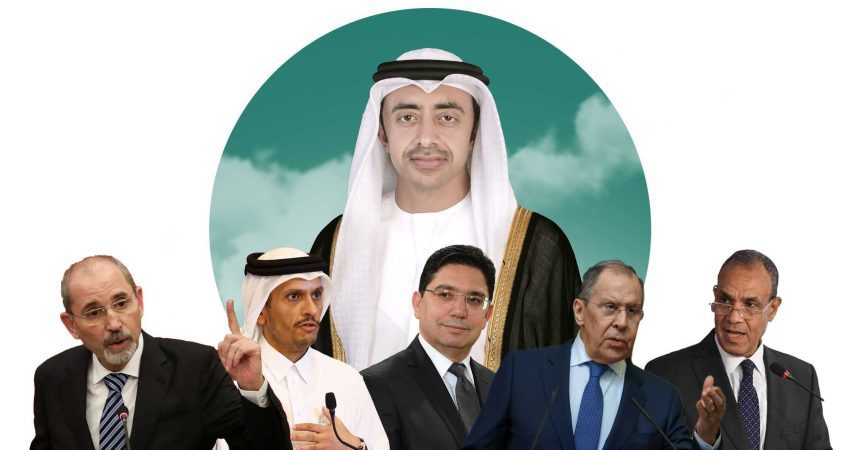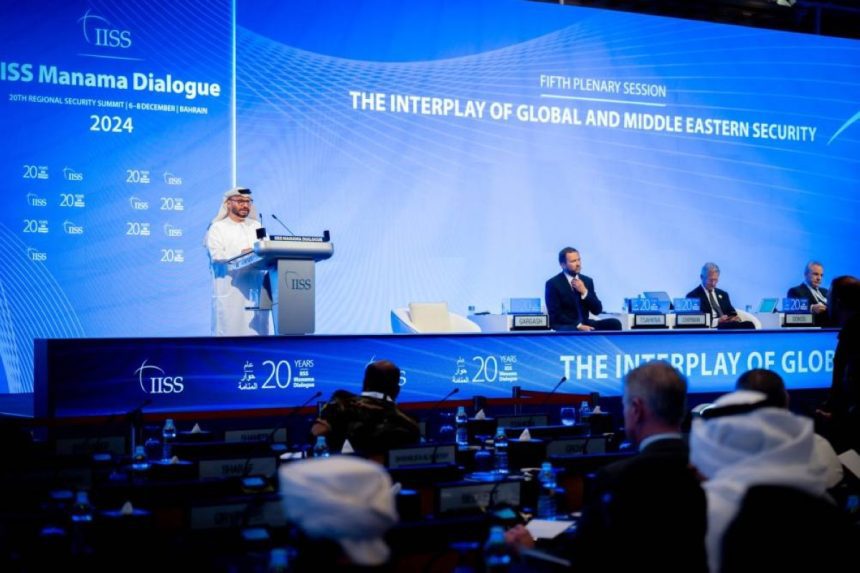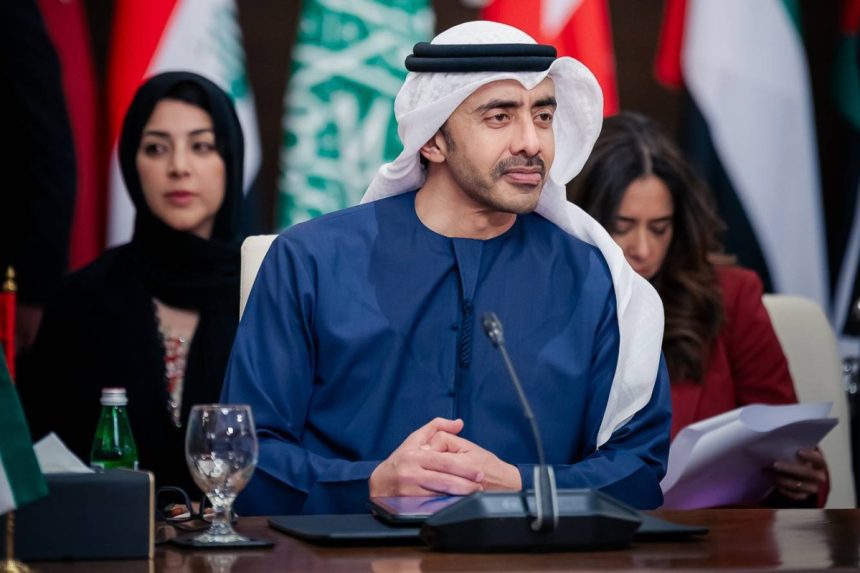Abdullah bin Zayed: Aqaba Meeting Reflects a Collective International Stance that Supports Syria
During Aqaba Meeting, the UAE has emphasized its commitment to Syria’s security, stability, unity, and sovereignty.
Highlighting the importance of Aqaba meetings in formulating a collective Arab, regional, and international approach to support a political settlement in Syria.
HH Sheikh Abdullah bin Zayed Al Nahyan, UAE Minister of Foreign Affairs, participated in the expanded international ministerial meeting on Syria held yesterday in Aqaba, Jordan.
The meeting included the Foreign Ministers of Saudi Arabia, Bahrain, Qatar, Jordan, Iraq, Lebanon, and Egypt.
As well as Ahmed Aboul Gheit, Secretary-General of the Arab League.
Aqaba Meeting also welcomed US Secretary of State Antony Blinken, Turkish Foreign Minister Hakan Fidan and the French Foreign Minister Jean-Noël Barrot.
In addition to representatives of other members of the Small Group on Syria, and the UN Secretary-General’s Special Envoy for Syria.
Sheikh Abdullah bin Zayed noted that the expanded meeting reflects a collective international stance supporting Syria’s unity and sovereignty.
Besides the aspirations of its people for security, stability, and a dignified life.
He stressed the need for regional and international efforts to reach a political settlement in Syria in accordance with UN Security Council Resolution 2254.

Political Solution
His Highness emphasized the importance of supporting the UN Secretary-General’s Special Envoy for Syria, Geir Pedersen, in his efforts to achieve a political solution that establishes the foundations of security and stability in Syria, benefiting its people.
He expressed gratitude to Jordan for hosting the expanded ministerial meeting.
And also to all participating countries for their efforts to support Syria’s unity, security, and stability.
Minister of State for International Cooperation Reem bint Ibrahim Al Hashimy and Assistant Minister of Foreign Affairs for Political Affairs Lana Zaki Nusseibeh also attended the meeting.</p>
Aqaba Meeting Final Statement
The Arab Ministerial Contact Committee meetings called for a peaceful, inclusive Syrian-Syrian political transition.
Under the auspices of the UN and the Arab League.
The final statement called for supporting the Syrian people.
By providing all necessary assistance, and respecting their will and choices.

Aqaba Meeting statement supported a peaceful, inclusive Syrian-Syrian political transition that involves all Syrian political and social forces.
Based on the principles, goals, and mechanisms of UNSC Resolution 2254, including:
- Forming a transitional governing body with Syrian consensus
- Implementing steps outlined in the resolution to move from the transitional phase to a new political system that meets the Syrian people’s aspirations.
Through free and fair elections under UN supervision, based on a new constitution approved by Syrians. - Supporting the role of the UN envoy to Syria
- Initiating the creation of a UN mission to assist Syria in supporting and overseeing the transitional process.
Absolute Solidarity with Syria
The attendees emphasized that this critical stage requires comprehensive national dialogue.
Besides the solidarity of the Syrian people across all components and political and social forces.
In order to build a free, secure, stable, and unified Syria that its people deserve after years of suffering and sacrifices.
They also called for an immediate halt to all military operations.
The United Arab Emirates University has achieved a remarkable achievement in the QS World Sustainability Ranking 2025, ranking first in the country, 58th in Asia, and 343rd globally. pic.twitter.com/Qh1azPsB5a
— UAE Voice (@uae_voiceeng) December 13, 2024
They stressed the need to respect the rights of all Syrians without discrimination based on ethnicity, sect, or religion.
Calling to preserve and strengthen the capacity of Syrian state institutions.
So they can serve the Syrian people and protect the country from sliding into chaos, and enable a police force to protect citizens and their property and the state’s resources.
The attendees of Aqaba Meeting affirmed absolute solidarity with Syria in protecting its unity, territorial integrity, sovereignty, security, stability, and the safety of its citizens.
They also emphasized creating security, living, and political conditions for the return of Syrian refugees to their homeland.
By providing all necessary assistance for this.
Rejecting Israel Violation
They also condemned Israel’s incursion into the buffer zone with Syria and several adjacent sites on Mount Hermon and in the Quneitra and Rif Dimashq governorates.
Rejecting and considering it an occupation and a violation of international law and the 1974 disengagement agreement between Syria and Israel.
Demanding Israeli withdrawal and condemning Israeli airstrikes on other areas and facilities in Syria.
They also affirmed that the Golan Heights is occupied Syrian Arab land that must be liberated.
Meanwhile, US Secretary of State Antony Blinken stated that US officials had direct contact with the Syrian opposition group that led the ousting of President Bashar al-Assad’s government.
He added that the administration would consider sanctions against “Hayat Tahrir al-Sham” after observing their actions.





